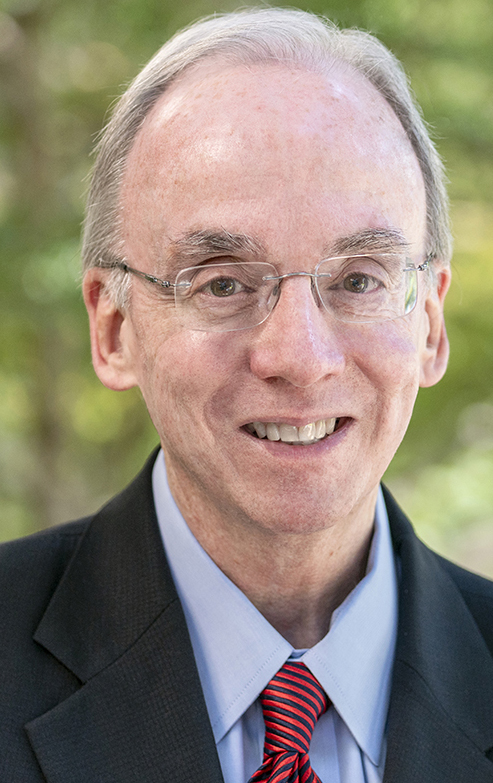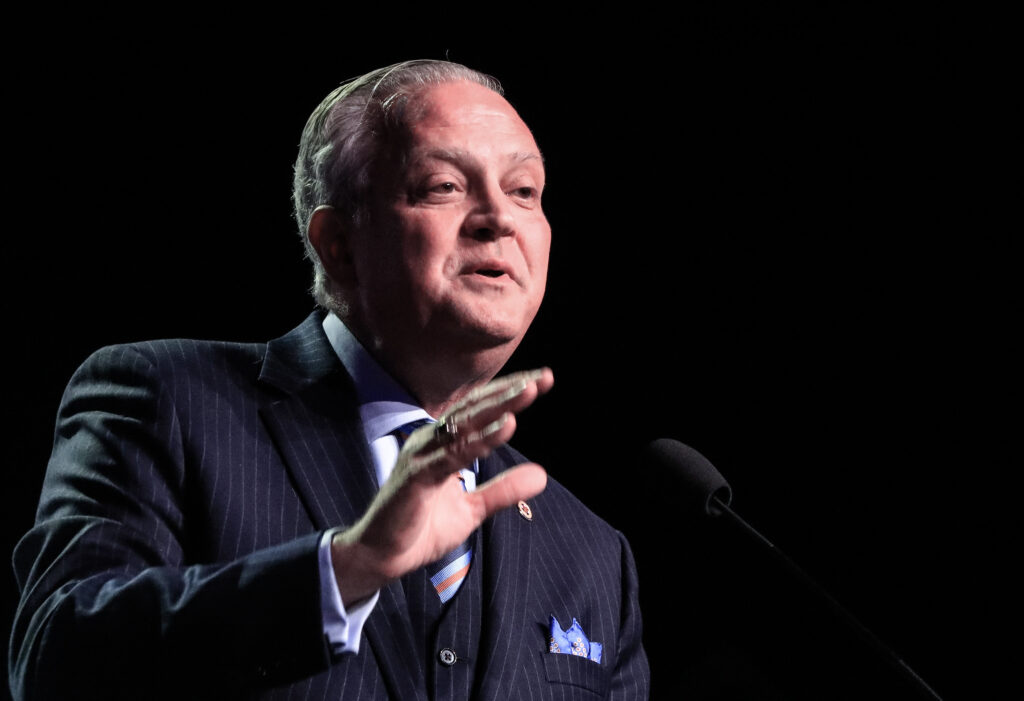
A significant milestone in Southern Baptist theological education has been reached this week that is worthy of celebrating as R. Albert Mohler Jr. has become the longest-serving president of Southern Baptist Theological Seminary—and all other Southern Baptist seminaries. To truly appreciate the importance of this milestone it must be understood in the history of Southern Baptist theological education and the notable leaders who have shaped that history—now clearly joined by Albert Mohler.

Please join me in reflecting on the many important people who have shaped theological education in Southern Baptist life. We must begin such thoughts with a reminder of the influence of Basil Manly Sr. and James P. Boyce. Where we would be without the three initiatives offered by Dr. Boyce in Greenville, South Carolina, in the 1850s? Would Southern Baptists have ventured into the work of theological education and ministry preparation without the push from Basil Manly Sr., who himself was an outstanding pastor and educator? Certainly, R. B. C. Howell was dreaming of ways to equip ministers from his role as pastor of the tall-steeple First Baptist Church of Nashville, but Manly’s initiative was of vast importance. What about John A Broadus and Basil Manly Jr., both of whom were significant voices in the nineteenth century, giving guidance to theological education curriculum and confessional beliefs, especially concerning the doctrine of Scripture? These nineteenth-century leaders, like those who would follow, were men of clay feet, but we owe much to their vision and courage.
The early twentieth century models of theological education in the SBC contextualized the early approaches of Boyce, Broadus, and Manly by bringing education to the Southwest while trying to engage the changing currents of thought influencing education and theological education in other parts of the country. Three giants took on these varied tasks in different ways. E. Y. Mullins served as the fourth president at Southern Seminary; his tenure was similar in length to Boyce as both served just shy of thirty years in these roles. Holding to the fundamentals of the faith, Mullins highlighted the role of experience in his work, The Christian Religion in Its Doctrinal Expression. B. H. Carroll and L. R. Scarborough served as the standard bearers for theological education in Texas, with emphases on the truthfulness of Scripture, confessional commitments, the need for cooperation, and the importance of evangelism and missions.
To this group must be added the names of Roland Q. Leavell, Leo Eddleman, Landrum Leavell, John R. Sampey, Duke McCall, Robert Naylor, Russell Dilday, Olin T. Binkley, Millard Berquist, Roy Honeycutt, Harold Graves, Gray Allison, and Paige Patterson. Many of these were involved in the push and pull of denominational controversy and theological shifts that took place throughout the twentieth century in Southern Baptist life. Sometimes friends became foes during these years of tension.
Not only presidents, but key faculty members like W. O. Carver, A. T. Robertson, F. H. Kerfoot, Gaines Dobbins, Dale Moody, Wayne Oates, James Leo Garrett Jr., Curtis Vaughan, Jack MacGorman, Jesse Northcutt, J. M. Price, I. E. Reynolds, Frank Stagg, Jeanine Bozeman, William Mueller, David Mueller, Bill Hendricks, Morris Ashcraft, Bill Hull, Wayne Ward, Floy Barnard, Huber Drumwright, John Newport, Lewis Drummond, Roy Fish, Robert Cate, Cal Guy, Bill Tolar, Jack MacGorman, Daniel Sanchez, T. Vaughn Walker, Benjamin Harlan, Chuck Kelley, John Polhill, Bill Leonard, Timothy George, and Russ Bush, among dozens and dozens of others who could be named influenced Southern Baptist theological education in various ways. Looking at this list let’s one know that Southern Baptist theological education has been anything but monolithic over the years.
Long term presidents have cast a long shadow over this work of theological education in the SBC since the founding of Southern Seminary in 1859: James Boyce (Southern Seminary, 1859-1888); E. Y. Mullins (Southern Seminary, 1899-1928); L. R. Scarborough (Southwestern Seminary, 1914-1942); Robert Naylor (Southwestern Seminary, 1958-1978); Duke K. McCall (Southern Seminary, 1951-1982), and Landrum P. Leavell II (New Orleans Seminary, 1974-1995).
To this list must be added the name of R. Albert Mohler Jr., who continues to serve in his 31st year at Southern Seminary, having been elected as the seminary’s ninth president in March 1993. Albert Mohler has clearly been the most influential theological educator in Southern Baptist life in the twenty-first century. In fact, he has been one of the most important voices in American evangelicalism as well as one of the most significant leaders when one considers all aspects of Southern Baptist life. While it is the case that not everyone has always agreed with Dr. Mohler, it must be acknowledged that he has led with conviction, informed by his Baptist, evangelical, and Calvinistic beliefs.
A prolific author, an engaging voice for the culture, a brilliant theologian, a Baptist historian of the first order, and a leader among leaders, Albert Mohler has spoken at key institutions across the country and has been ready to offer a Christian perspective on a host of cultural and educational issues for the national media. He has served on every important denominational committee in SBC life over the past thirty years. During his three decades at Southern Seminary, the enrollment has grown substantially making Southern Seminary one of the largest seminaries in the world. In addition, the financial resources have expanded while the campus continues to be one of the most beautiful places in the country to offer theological education.
Much could be written about the life and work of Albert Mohler. No doubt in the years to come, much will be written as his leadership practices and theological work will be explored by many. Dr. Mohler has now become the longest serving president in the history of Southern Baptist theological education and the most influential Southern Baptist theological voice of the twenty-first century. On this day we offer our gratitude for his life and service and our congratulations for his remarkable tenure and influence.
















